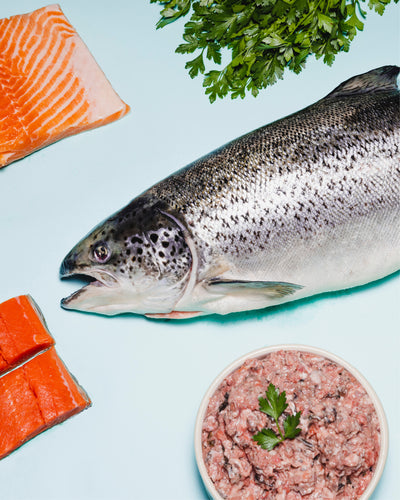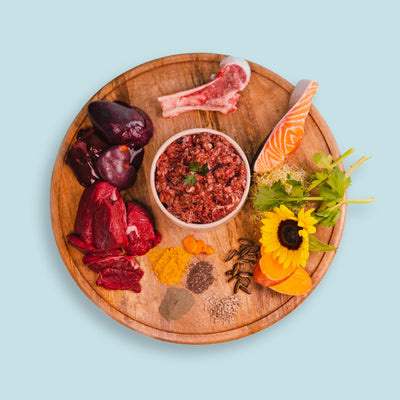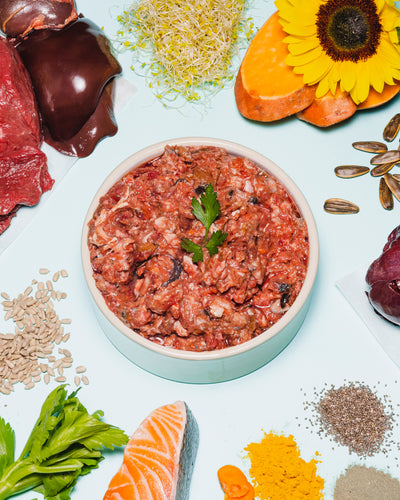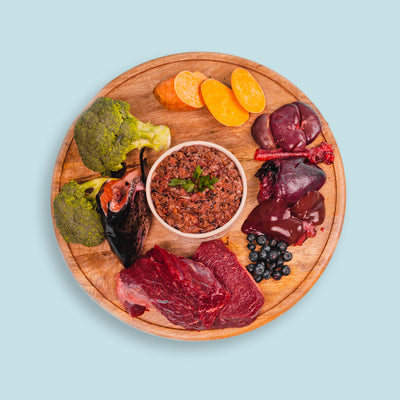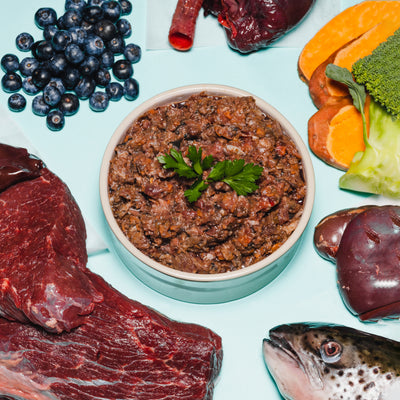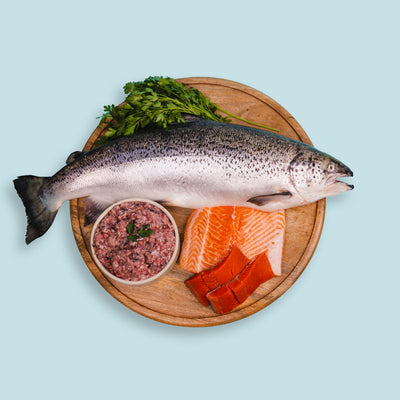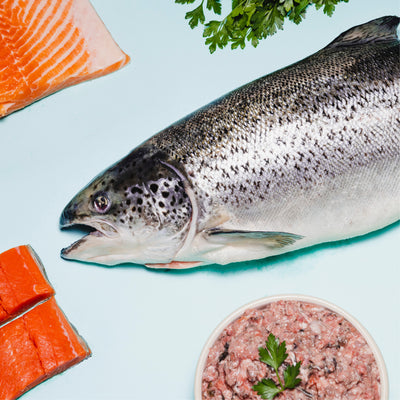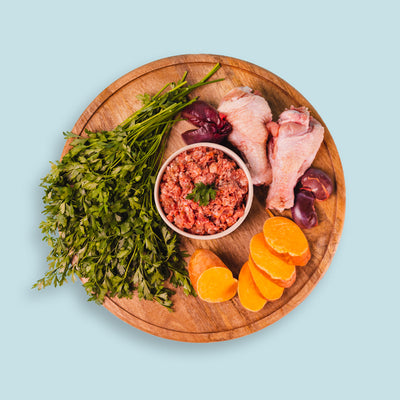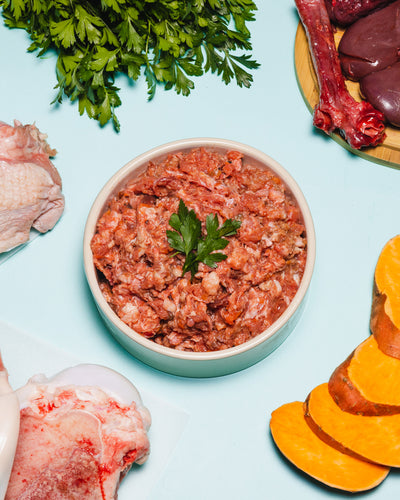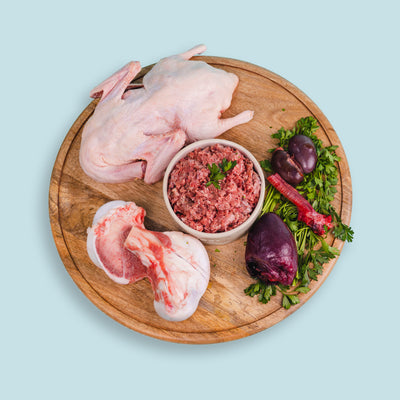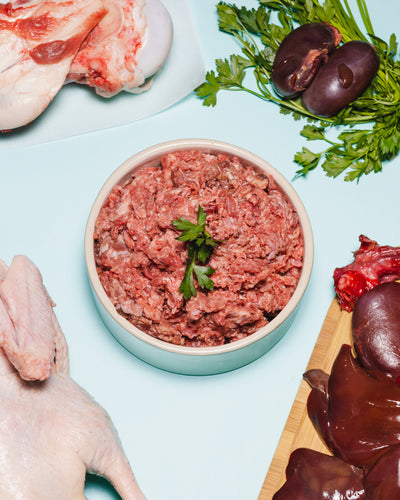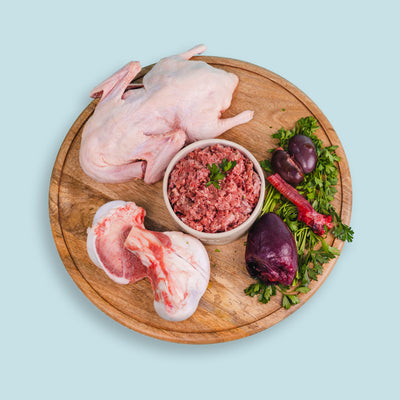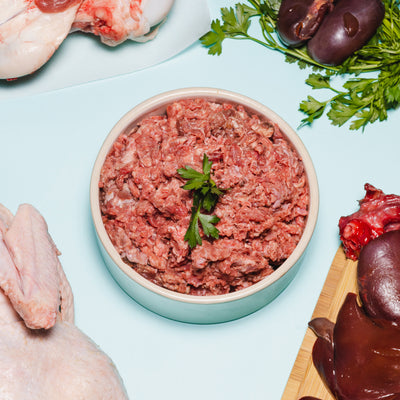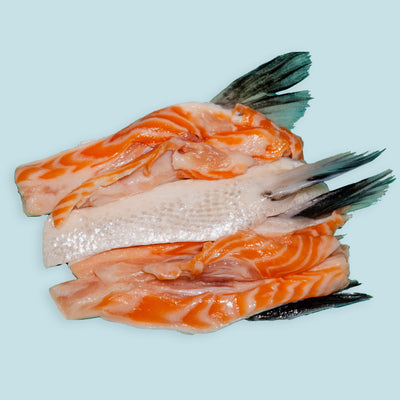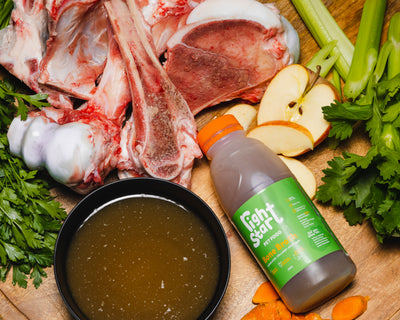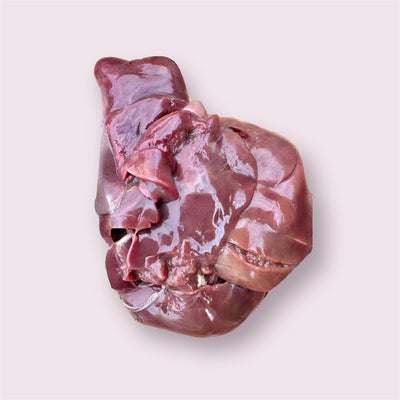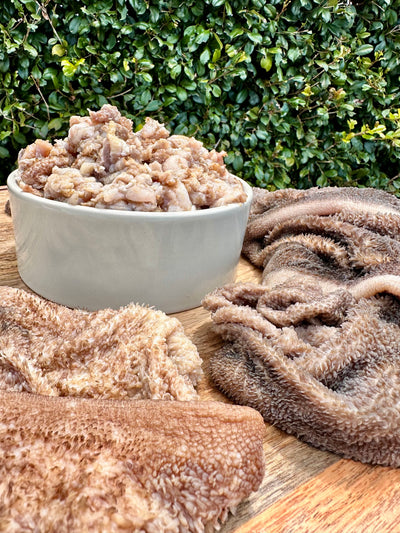How To Improve Your Pets Gut Health
As pet owners, our furry friends are family; "Love Them Like Family – Feed them Like Family" health is of utmost importance to us for their longevity for a happier and healthier life. One of the most common health concerns in dogs is gut, stomach, and allergy issues, all of which have an impact on their overall health and well-being. From the occasional tummy upsets to more serious digestive issues, including but not limited to multi-sensitivities and inflammation known as gastroenteritis.
Rule #1 Stick To A Well-Balance & Complete Diet
RSPF offers a selection of flavours, all offering a well-balanced diet formulated specifically for your dog; this is by far the healthiest choice you can offer. Consistency is key; switch it up with various flavours, monitoring your dog's behaviour while working with tolerances.
Rule #2 Select A Single Raw Protein Diet
A single raw protein diet can be a game-changer for pets experiencing ongoing gut and stomach issues; not only is it highly digestible and absorbed well, but it is also calming on the gut. By reducing the number of ingredients in their food, you minimise the chances of an adverse reaction to one of them. Select a single source of protein, such as duck, turkey, roo, or salmon, which is less likely to cause an allergic reaction as they are hypoallergenic.
Rule #3 Food Matters – Check All Ingredients
Limited-ingredient diets can also help eliminate potential allergens and are highly digestible, making them easier to tolerate with less strain on your dog's digestive system and organs. We have carefully selected only premium, wholesome protein all-natural and human-quality ingredients across our range of flavours, ensuring we are only using ingredients that have a purpose for nutrient value and energy outcome, without unnecessary fillers, chemicals, preservatives, grains, that have no benefit in your pet's diet, by eliminating these your dog will be off to the Right Start every day.
Reading your pet's food labels and becoming more knowledgeable, you'll find the list of ingredients in descending order, with the first ingredients listed being the most present in the food, any ingredient you don't recognise you should not be feeding.
Rule #4: Too Much Change Is Not Ideal
Just like us humans, sudden diet changes can lead to digestive upset in your pets. When thinking of switching your dog's food over, allow for a gradual change over several days to allow their digestive system time to adjust. Their stools are the perfect example, so do take note when your dog poops. Their poo indicates the food's digestibility capability; it is very satisfying to learn about your pet's poo and how it holds the answers to their gut issues. It should be firm and easy to pick up with your hand with a poop bag.
Rule #5 Control The Hand That Feeds
Portion control is one of the most important mistakes pet owners make, as they may become heavy-handed, offering more than is needed most times, or need to understand the calorie intake of the food fed fully. Overfeeding your pet can lead to digestive problems such as loose stools and abdominal discomfort, so be mindful of portion sizes; if your dog is not hungry or turns away, don't offer anything else; feed only when your dog is hungry. Always use a kitchen scale if you have not purchased our portion-controlled packs, ensuring you are not underfeeding or overfeeding. Further read: How much should I feed my puppy or dog?
Tip: Use our Feeding Guidelines Here to find your dog's recommended daily intake based on their size, age, weight, life stages, and activity level.




